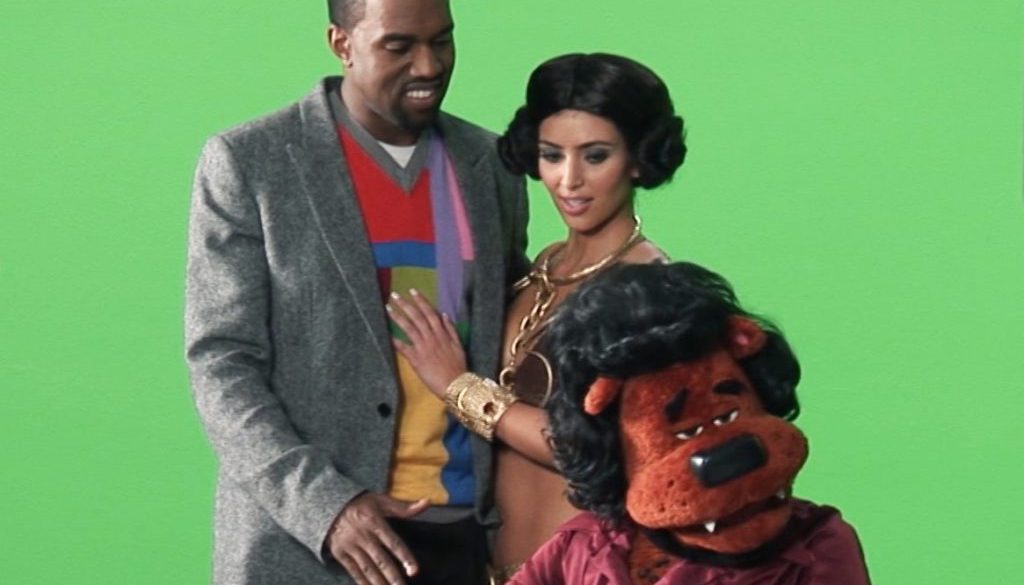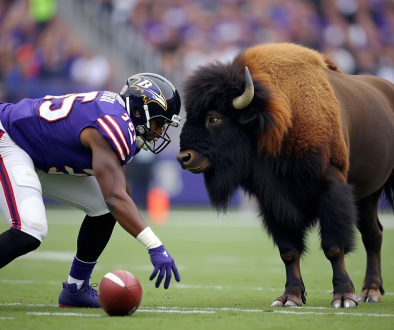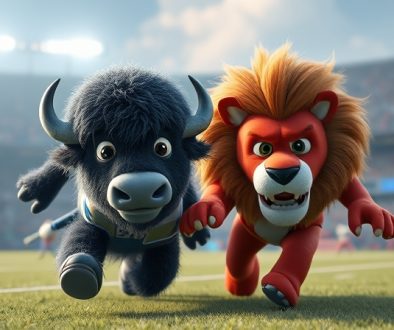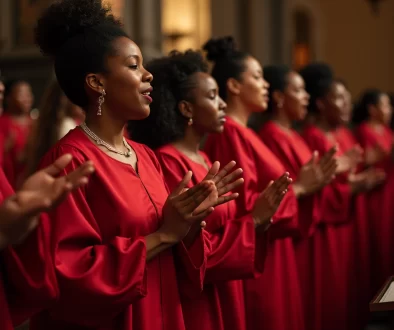Kanye West’s Lost Puppet Comedy TV Pilot, ‘Alligator Boots’: an Oral History | WIRED
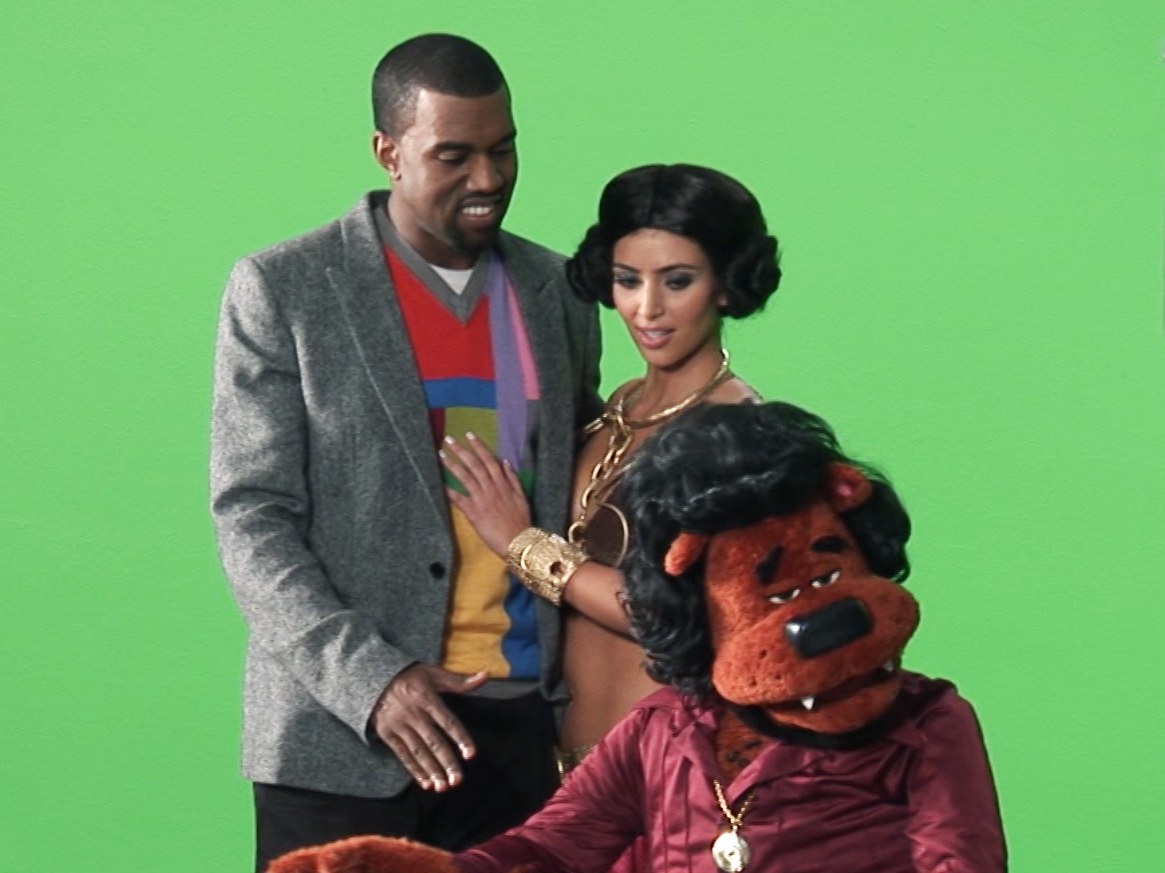
Kanye West, Kim Kardashian, and Beary White on the set of Alligator Boots.
THE YEAR WAS 2007. A young upstart from Chicago was promising change we could believe in. Meanwhile, another son of the Windy City, Kanye West, had an idea for a quintessentially Yes We Can pursuit: a puppet-based sketch comedy show. Alligator Boots, which West cocreated along with collaborator and friend Rhymefest, came to life as a filthy, irreverent spoof of The Muppet Show, hosted by West and costarring a felt-covered pig named Pork Troy. While Comedy Central ultimately decided to pass on the series, the pilot has lived on as a what-coulda-been pop-culture footnote—and now, a decade later, many of those involved have agreed to tell their stories. Can we take you to the scene of Kimye’s meet-cute, Jordan Peele’s first job after MadTV, and the recording of “Flashing Lights”? Lace up your boots.
I. “A Hip-Hop Muppet Show“
In 2007, Kanye West was in Los Angeles working on his third album, Graduation. The album would go on to sell almost 3 million copies and win a Grammy for Best Rap Album—but during the recording sessions at LA’s Record Plant studio, an idea emerged that would capture Kanye’s interest as a side project.
Konee Rok (video director, animator): At the time, I was traveling all over documenting the making of Rhymefest’s album. Kanye was working on Graduation, and we were all in the studio: Kanye; Common; Big Sean was there too, but no one really knew him yet. Rhymefest started doing a character named Pork Troy, and everyone was laughing—then Kanye was just like, “You know, we should do something with that.” Kanye knew Jimmy Kimmel—Kimmel is a part of Jackhole Productions, and they were behind Crank Yankers. Kanye suggested they make a puppet show.
Daniel Kellison (cocreator of Crank Yankers): A lot of hip-hop guys were into Crank Yankers, so I wasn’t entirely surprised, a year or so later, that I got a call that Kanye West wanted to meet. He said, “My buddy Rhymefest has this idea about this puppet Pork Troy and it’s a sci-fi thing.” It was a pretty convoluted idea. I said, “It seems like what we got here is sort of a hip-hop Muppet Show. Let’s develop this a bit more.” And to their credit, they were open to that.
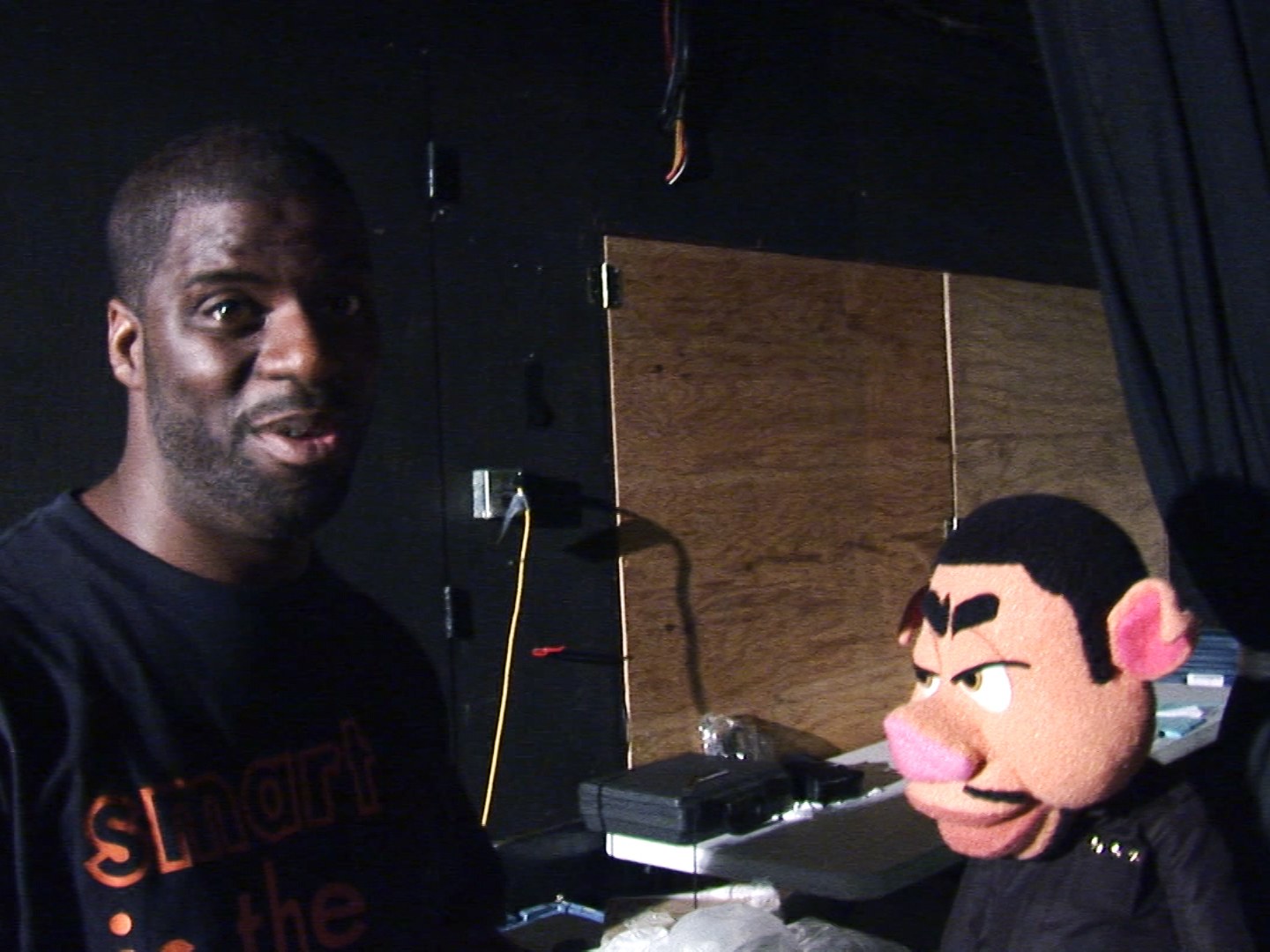
Rhymefest with his brainchild, porcine rapper Pork Troy.
Victor Yerrid (puppeteer): The puppet world is very small, so they contacted me about putting together the puppet team for that. And because it was a similar lip-sync show, I brought in a lot of the same guys we had used for Crank Yankers.
Alice Dinnean (puppeteer): There was a phase where all of us wound up on a lot of adult-themed puppet shows in the mid-2000s. That’s when you had Crank Yankers and Team America: World Police, and Jimmy Kimmel would have puppets on his show. It was a thing for a little while.
Kellison: For a long time, it was like Untitled Kanye West Puppet Show. We had a real hard time coming up with the name. Finally, Kanye goes, “I want to call the show Alligator Boots.” When he was a kid growing up, if your uncle had a pair of alligator boots, that was sort of like you made it. That was what it was meant to be.
Konee Rok: It ended up going to Comedy Central, and I think they got a $1 million budget and shot it. It was a five-day shoot on the Jim Henson lot.
Jon Kimmel (head writer): Rhymefest was probably my very favorite part of doing the show. I would love to have him in every room I ever wrote in, because he’s so funny and just a really smart guy.
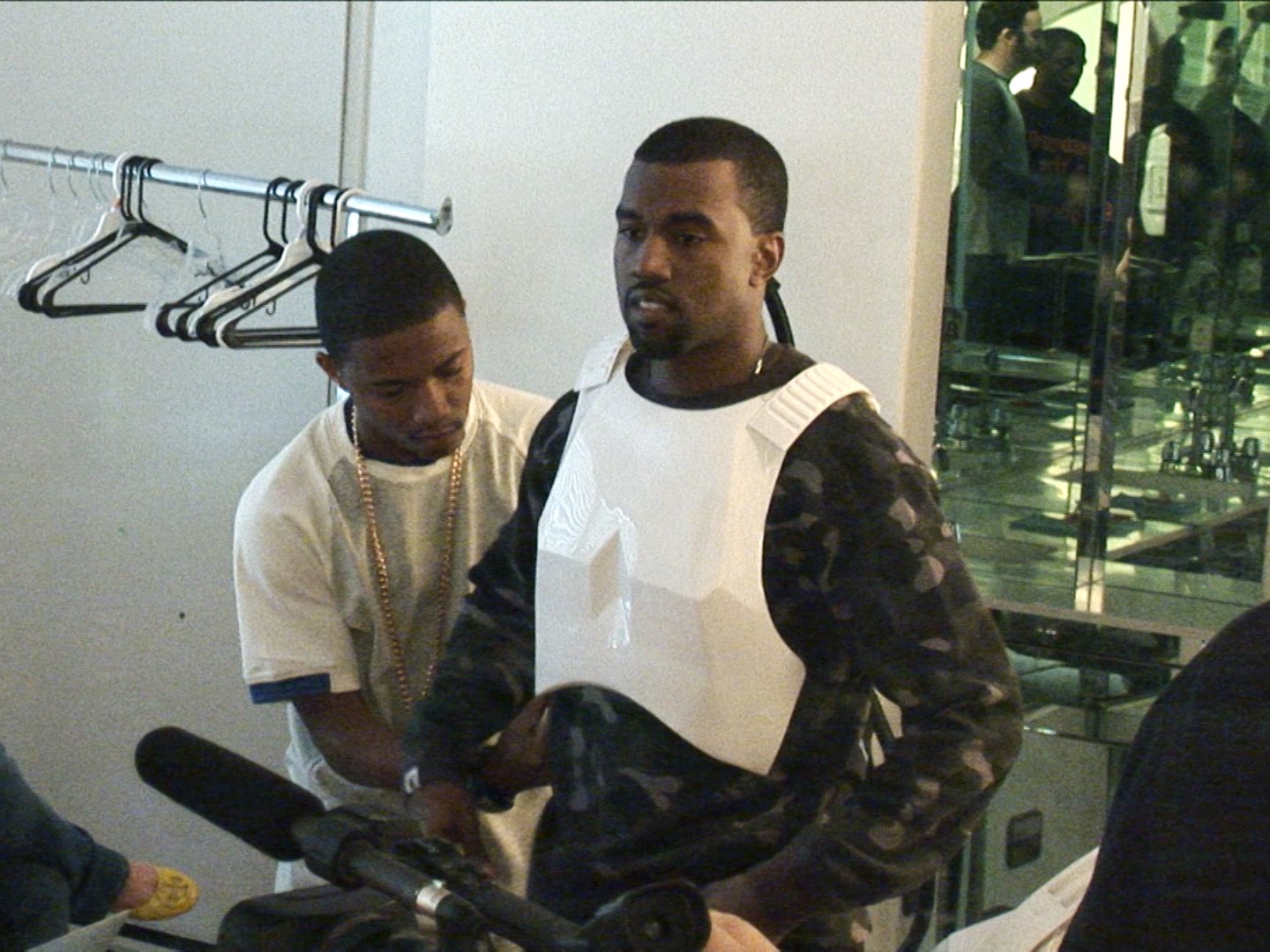
Kanye getting ready for his stormtrooper close-up.
II. “The Baller-est Thing I’d Ever Seen in My Life”
While Rhymefest, along with Kimmel and Kellison, were the most instrumental in writing the pilot, West was deeply involved in the preproduction: Kellison says West would call him regularly, at all hours, with ideas about sketches and characters—he was especially interested in the look of the puppets.
Artie Esposito (puppeteer): The main character was Pork Troy, and he sort of played the Kermit role. There would be a guest star each week and stuff going on backstage, and what was going on onstage. And the hilarity ensued.
Tom Stern (director): It’s not like Kanye had a ton of ideas about comedy, but the things that he did care about were more like what kinds of sunglasses and sneakers the puppets would wear.
Kellison: Puppet wardrobe is expensive to begin with. Normally what they do is buy Baby Gap clothes. And Kanye really cared a lot about what the puppets looked like, to the point where Carol Binion, who did a lot of that wardrobe, had to do tons of extra work to make those things look presentable.
Stern: He made some speech where he ranked sneakers in order of coolness—I think Skechers were at the bottom of the list.
Kellison: At one point, he wanted to have the artist KAWS do the puppets. Which I wish we would have done, because those puppets would be worth a million dollars.
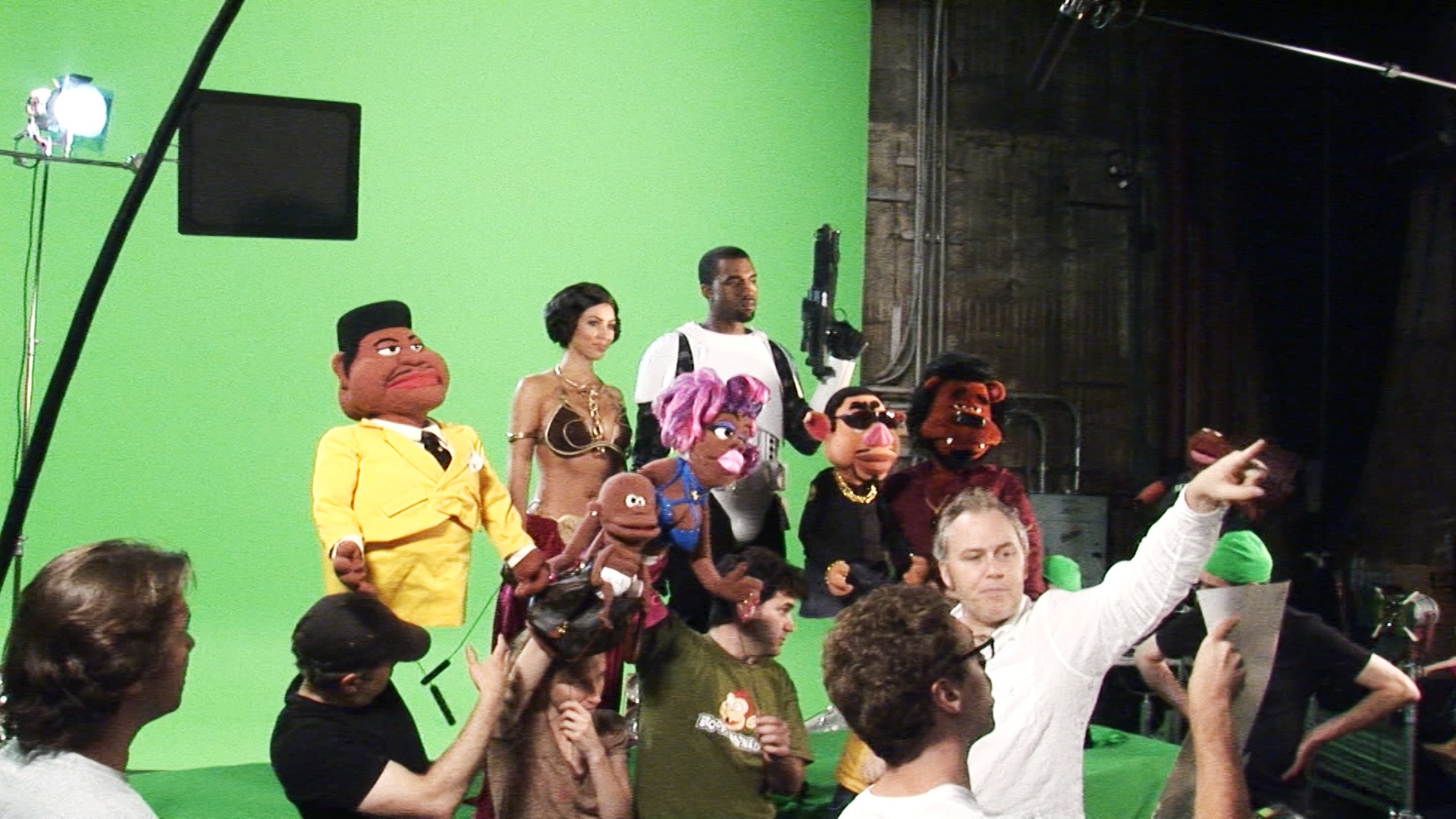
Alligator Boots’ grand finale number: two humans, five puppets, infinite strangeness.
Kimmel: He cared about how it all looked. He wanted these characters to be contemporary and feel like they were regular people, so I thought that was a smart thing to have him involved with all that—I don’t remember him being a jerk about it or anything. But he was very specific with his notes.
Kellison: I went to his house and he had this great ceiling that had sort of a Sistine Chapel–type mural painted on it—with him in it. I remember thinking that was the baller-est thing I’d ever seen in my life. He had a room just filled with clothes, like out of a Macy’s warehouse kind of thing. He said, “When I saw American Psycho, I felt like: I’m a little bit like that Patrick Bateman character, but without the murders.”
III. When Kanye Met Kim
West was the only human star in the original plan for the pilot, but he had an idea for a love interest. On The Muppet Show, a singer might juggle or an actor might dance; onAlligator Boots, Kanye wanted to dress up like a stormtrooper for a sketch with a costar clad as “slave Leia” from Return of the Jedi. And he had one very specific person in mind.
Kellison: Kanye came to me and said, “I want to put Kim Kardashian in the show.” Now, at that point, Kim Kardashian was known for only one thing—her sex tape with Ray J, which had just come out.
Stern: We initially wrote it for—I don’t want to say Paris Hilton, but somebody else. We were talking about it, and Kanye was like, “Nah, nah, nah. Get Kim Kardashian!”
Kellison: When I first met Kanye, he was recording that song “Flashing Lights”—I walked into the studio and he was behind the control board, and this woman was singing one of the sections of the song. She goes, “How about that take?” And he was like, “I’m sorry, I missed it. Can you do it again?” He was watching the Kim Kardashian tape on his computer; it had come out that day, and that’s why he was distracted.
Kimmel: I didn’t know a whole lot about Kim Kardashian at the time, but Kanye seemed to think she was a great choice.
Stern: That was probably the thing he was most certain about on the show.
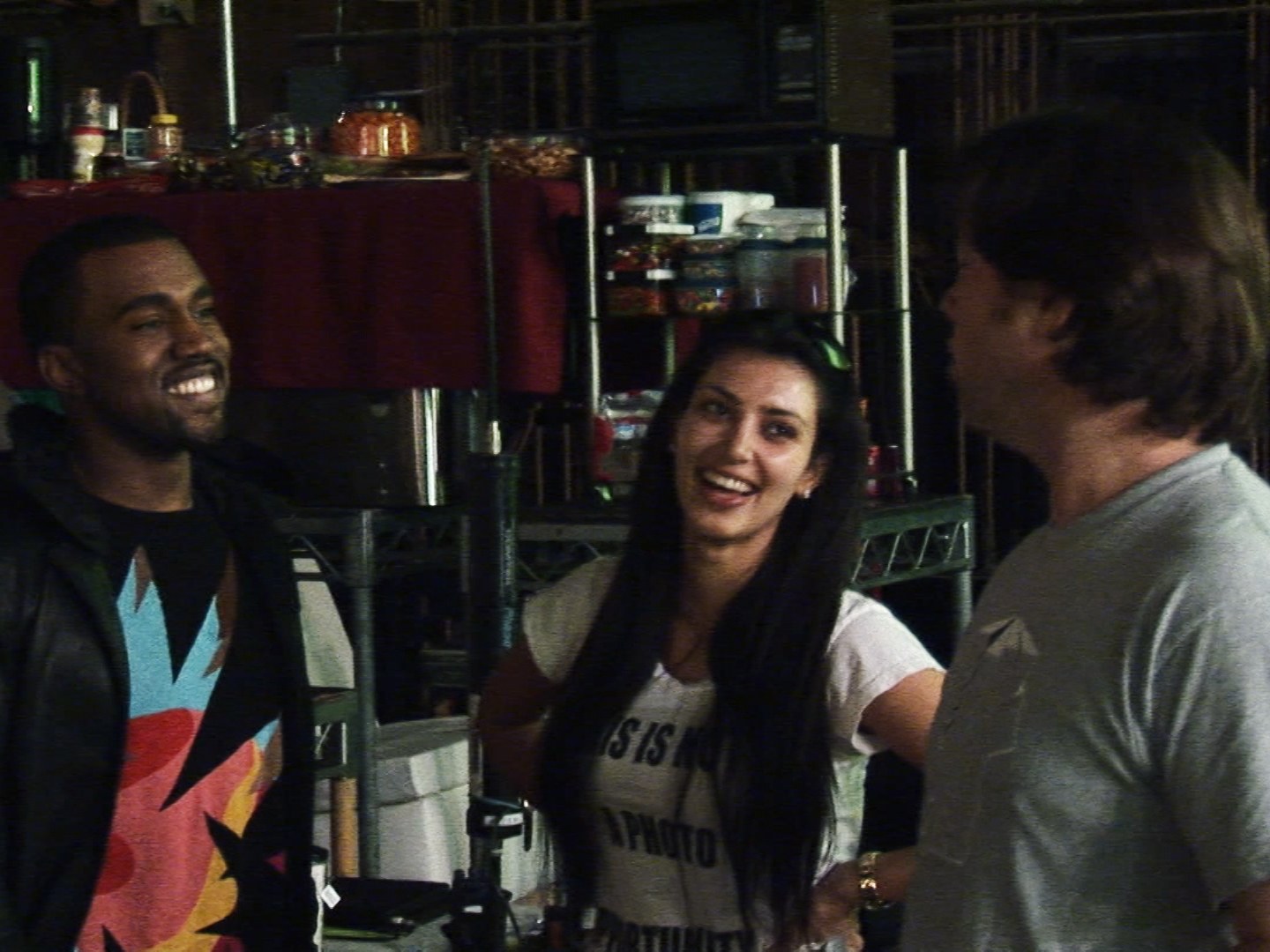
The future happy couple, with cocreator Daniel Kellison.
Kellison: I told Kanye that it was a bad idea, but I did it as diplomatically as I could. I said, “The Muppet Show always had one star. You’re the star of the pilot. We can put Kim Kardashian in episode 3 or 4, but let’s focus on you.” But he resisted. Kanye is tenacious and he kept asking me about it, and finally we compromised and agreed to have her in a sketch. He’d never met her at this point.
Kimmel: He’s not a guy you should ever discount because it’s pretty clear that whatever he chooses to do, he’s passionate about it and he has specific reasons. And the guy is way more successful than me.
Kellison: So Kim Kardashian walks in, and I’m there to greet her with Kanye. And I go, “Hi, I’m Daniel. I’m the executive producer. Nice to meet you, and this is Kanye.” And Kanye goes, “Yeah, Dan didn’t want you on the show.” She laughed—by the way, Kim Kardashian was lovely. A pro. She was really excited to be there. But I turned to Kanye afterwards and I go, “You motherfucker, I should have told her that, when I first met you, you were watching her porn.” And he starts laughing and goes, “Oh my God, you totally should have.”
Dinnean: So this was their Mr. and Mrs. Smith?
IV. “He Was Clearly Not Happy About It.”
The puppeteers on Alligator Boots have worked with some of the biggest stars in Hollywood—they weren’t daunted by the prospect sharing the Jim Henson Company’s Chaplin Stage with Kardashian and West. (“I’ve been down by the calves, thighs, and other parts of many beautiful and talented celebrities,” says Yerrid, who also played the tiger in The Hangover.) Yerrid and Esposito controlled an ursine puppet named “Beary White” as he serenaded Kim, but no puppeteer had a more intimate experience than Alice Dinnean did with Kanye West.
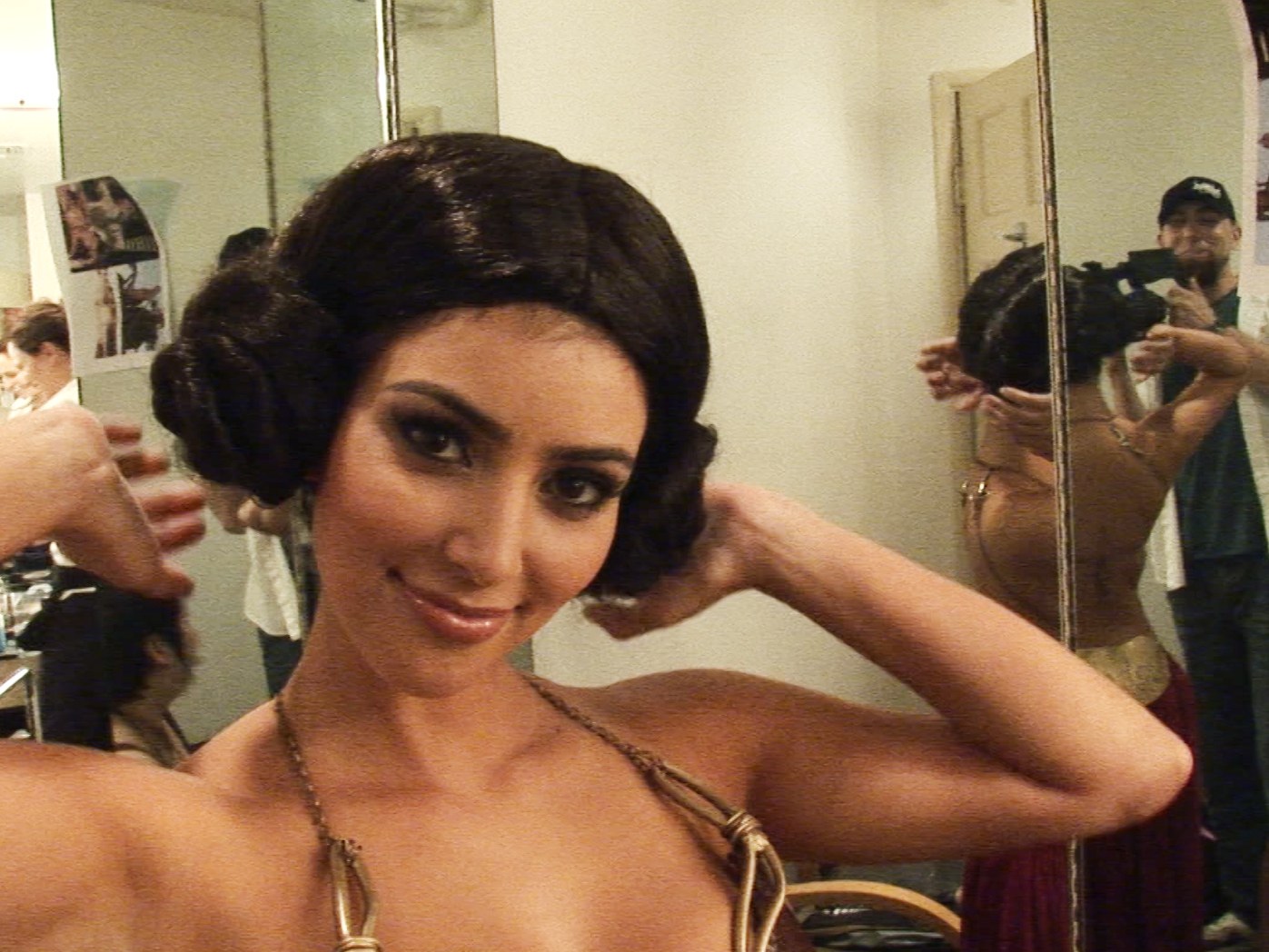
Kim Kardashian West (in her pre-“West” days) rocking the Leia look.
Yerrid: We did this music video called “Baby in the Club,” about people who bring their babies to the club, and Alice had to hit Kanye in the face with this little hard plastic rattle. We would do one or two takes of everything, but for whatever reason, this one scene they did like 20 times. And he clearly was not happy about it.
Dinnean: I was sort of under a car seat and it was a really uncomfortable spatial situation for both of us. I remember Victor leaning in at one point and saying, “You know you’re really hitting this guy in the face?” [Laughs.]
Yerrid: They’d be like, “All right, Kanye, we’re gonna do this again, can you get your face closer to the rattle?” And he’d be like, “You know, it hurts!”
Dinnean: They absolutely might have been punking him, and asking for another take and another take and another take. I would not put that past someone like Daniel Kellison.
Kellison: I love Kanye and I loved him at that moment, and there’s zero truth to that. But it’s a funny theory.
V. King of the Writers’ Room
After Kimmel had assembled the writers for the pilot, one voice stood out right away: Jordan Peele. The young comedian had just finished a run on MadTV, and was about to start a script that would eventually become Get Out. Every person who spoke to WIRED for this story mentioned Peele’s “I Have a Dream” sketch as their favorite from the pilot—though no one remembered the details quite the same way.
Jordan Peele (writer): When I was in college, my major was actually puppetry. I went to Sarah Lawrence College, which is liberal arts—very declare your own major—and I had always wanted to be a filmmaker, but the performing aspect was something I had an early knack for. So I figured OK, well, puppetry, that’s where those things intersect.
Kimmel: When you work with a guy like that, it becomes clear pretty quickly, like—why isn’t this guy the most famous comedian in the world right now? Because he’s just so naturally funny, and his ideas are that good.
Yerrid: There was this “I Have A Dream” speech, which, man, they should just release that on its own.
Peele: It was basically a puppet version of Martin Luther King.
Yerrid: It starts out as this powerful speech, and then it devolves into this weird surreal dream.
Esposito: And his wife is, of course, shocked and appalled that he’s making a speech about the actual dream that he had had.
Peele: I don’t remember any of the specifics—but it was one of those things where it’s like, “And in the future, my mother’s there, but she has the head of a Smurf. And all the little children are actually horse-sized ducklings running around.”
Stern: “I had a dream that there was a giant moth that flew over the city. An ice cream on the Empire State Building.”
Yerrid: “I was walking down the supermarket aisles looking for some pretzels, but the pretzels had turned into aliens.”
Esposito: “I had a dream and everyone turned into slugs. And then we had a giant salt shaker and poured it on the slugs.”
Kellison: I just remember that I thought it was fucking brilliant.
VI. “Why the Fuck Didn’t They Make This Show?”
No pilot is guaranteed to get the go-ahead from a network, but the star power and premise of Alligator Boots made it seem like a sure thing. Kimmel, who admits the episode was flawed, was still surprised it didn’t get picked up: “It’s easy to wrap your head around, that’s for sure. It’s in the no-brainer realm.” Now it exists in limbo: 22 minutes of weird comedy that no one will ever see. It could have been another dirty puppet show—instead, it’s become a legend.
Kellison: Comedy Central had a party, and they said, “Hey, can you bring Kanye to this party?” It was so fucking transparent to me what the motive was there. Kanye knew what they were doing too, but he wanted to have the show get picked up. I brought Kanye and Sarah Silverman together to that party, and then the next day they told us they weren’t picking it up. And I like Comedy Central, I’ve done 10 shows with them—the people that asked us to do that aren’t there anymore—but it was fucking low. I told him it would be really horrible if they did that, and that’s exactly what they ended up doing.
Yerrid: It’s a really hard thing to sell a show. What it comes down to is either some random opinions in a focus group, or it’s just one or two network executives who are like, “Meh, let’s do a different show.” Everybody puts in all this time and effort and money, and then it comes down to one guy’s whim in the eight minutes he watches your pilot.
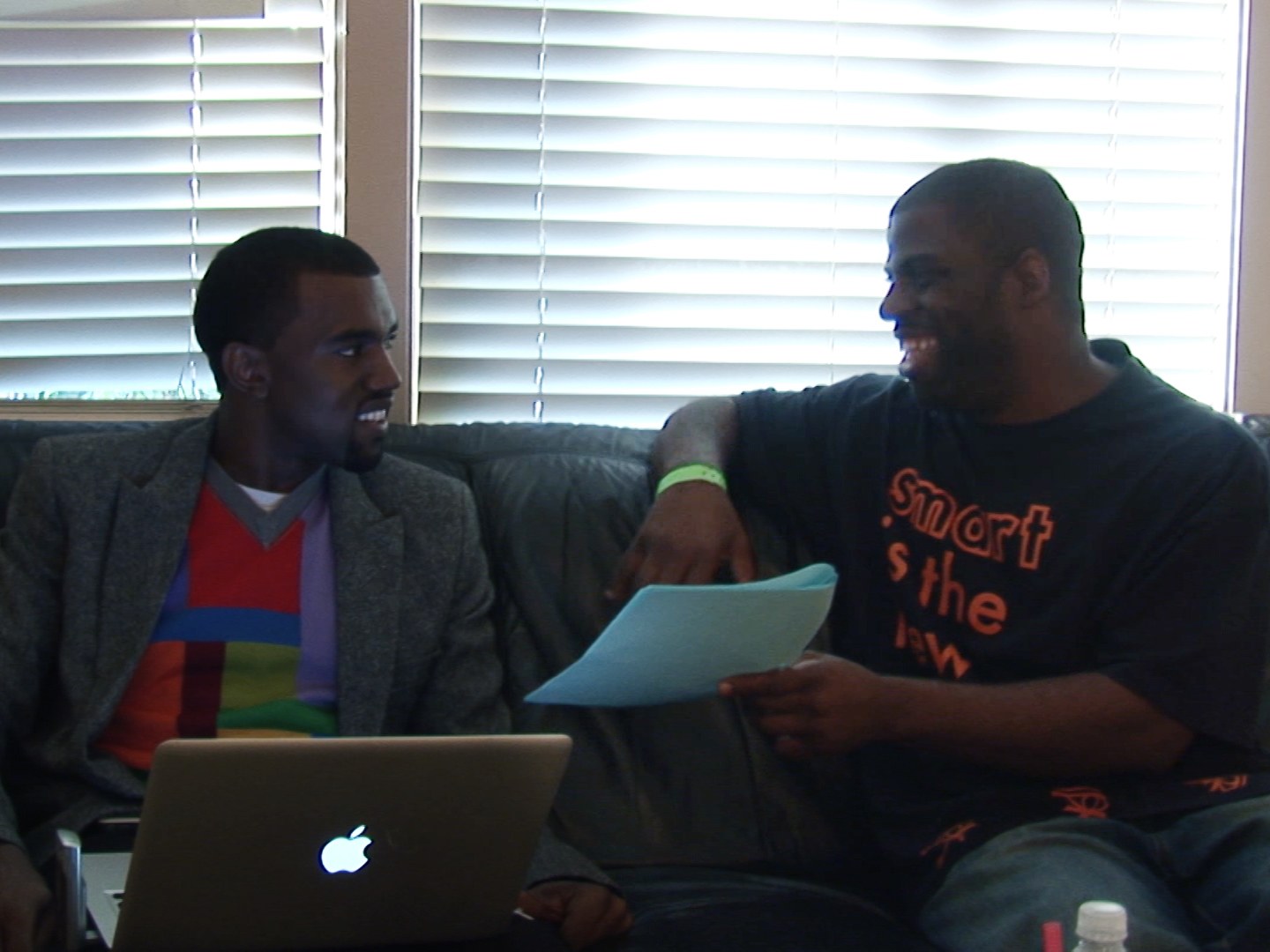
West and ’Fest.
Stern: I’m not gonna say Kanye was Richard Pryor. He’s not a naturally funny guy, but he tried hard once he was onstage. But yeah, the show could have been picked up. Why not? The Muppet Show was great, and there’s no reason this one couldn’t have been great.
Peele: It came at this very key moment in my career, when MadTV had ended and I had just started to think about what was next for me after sketch comedy. And with the people involved, I really do think it could have been a very cool show.
Kellison: Konee Rok built that behind-the-scenes documentary—what was great about that was that it made the show look better than it was. It was sort of a cool thing because everyone was all of sudden like, “Why the fuck didn’t they make this show?”
Konee Rok: So, yeah, all right, maybe the show wasn’t great. But it’s a seed. Look at the pilot of The Simpsons. It’s a shell of what it became. It had a lot of potential—it still does. But I think this is one of those things where it just wasn’t meant to be. It’s probably better living as it is, as this urban legend.
Kimmel: Months after the show was over, I was walking down the street on my way to a dinner and I get a phone call, and it’s Kanye. And I was like, “Wow, Kanye’s calling me!” to my wife. And I answer the phone and I’m like, “Hey Kanye, what’s up?” And he’s like, “Oh, is this Jon Kimmel?” And I was like, “Yeah.” And he’s like, “Oh, sorry. I called the wrong Jon.” I can’t remember if he meant to call John Legend or another famous John. But I’m in his autofill—I’m accidental friends with him.
Source: Kanye West’s Lost Puppet Comedy TV Pilot, ‘Alligator Boots’: an Oral History | WIRED
